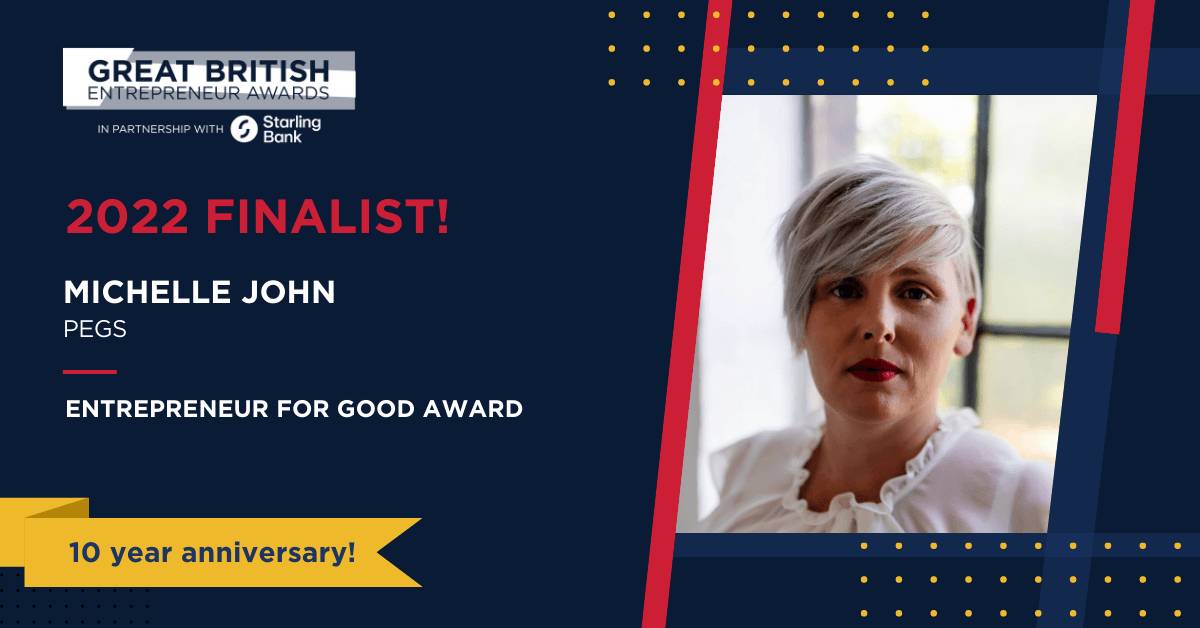Child to Parent Abuse campaigner reaches awards final
A campaigner working to reduce the impact of Child to Parent Abuse has impressed the judges of the Great British Entrepreneur Awards.

Michelle John, our Founding Director, has been named among the Midlands finalists in the Entrepreneur for Good category.
The winners will be announced at a ceremony in London on Monday 21st November. It’s the tenth anniversary of the awards, which this year had more than 5,300 entrants.
Michelle said: “I’m delighted to have reached the regional finals, and honoured to be named among some of the very best entrepreneurs the UK has to offer.
“While it’s a personal highlight to be named as a finalist, it also means that many more people will hear about Child to Parent Abuse through the awards – which is fantastic in itself. While at least 3% of UK households are estimated to be impacted by CPA, it still remains a largely-hidden form of domestic abuse, which is why we work so hard at PEGS to highlight the issue.”
PEGS has four main aims: supporting parents, carers and guardians experiencing CPA, no matter the age of their child (including adult offspring); training frontline professionals including police forces, social care teams, and school staff; raising awareness through traditional, digital and social media, events and speeches; and influencing regional and national policy.
In its first two years of operation, PEGS helped more than 2,000 parents via peer support, bespoke workshops, empowerment programmes, advocacy and one-to-ones. All parental support is provided for free regardless of the financial circumstances of the family.
Founder of the Great British Entrepreneur Awards, Francesca James, said the quality of this year’s entrants exemplified the strength of entrepreneurship across the UK: “The quality of applications is consistently excellent year on year, but we have been especially blown away by the innovation, drive and determination demonstrated this year. Shortlisting from so many inspiring contenders has been more challenging than ever, with many deserving cases put forward and an ever-growing business community thriving across the country.”
Visit greatbritishentrepreneurawards.com for more information about the awards.





